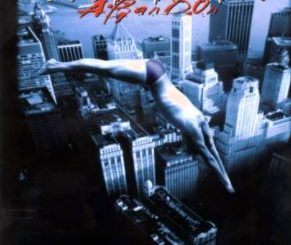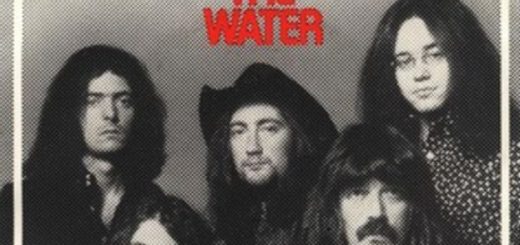Black Night by Deep Purple Lyrics Meaning – Unveiling the Veil of Melancholy in Classic Rock
Lyrics
I don’t feel so bright
I don’t care to sit tight
Maybe I’ll find on the way down the line that I’m free
Free to be me.
Black night is a long way from home
I don’t need a dark tree
I don’t want a rough sea
I can’t feel, I can’t see
Maybe I’ll find on the way down the line that I’m free
Free to be me
Black night is a long way from home
Black night, black night
I don’t need black night
I can’t see dark night
Maybe I’ll find on the way down the line that I’m free
Free to be me
Black night is a long way from home
In the sprawling tapestry of rock history, Deep Purple’s ‘Black Night’ stands as an enigmatic anthem of the 70’s rock scene. Released as a single in 1970, the song didn’t appear on any of the band’s UK studio albums, yet it received widespread acclaim, climbing the charts and embedding itself in the rock lexicon. As the chords press forward with unrelenting force, the lyrics speak of something deeper, almost existential in its root.
The song title alone evokes the darkness that can consume one’s soul. Yet, as we plunge into this richly woven piece of music history, we realize ‘Black Night’ is more than just a catchy riff and a chorus; it is a complex narrative of freedom and existential angst wrapped in a deceptively simple package. With this exploration, we’ll sink our teeth into the marrow of the song’s lyrical substance and emerge with a revitalized understanding of this classic tune.
The Darkened Canvas of the Soul
Initially, ‘Black Night’ confronts listeners with a stark admission: ‘Black night is not right/I don’t feel so bright,’ establishing a mood of discontent and a longing for clarity. This isn’t merely the absence of light but rather a metaphorical darkness that seeps into the singer’s own spirits, clouding judgment and dampening the very will to push forward. It’s a bold opening salvo that resonates with anyone who has ever felt lost within themselves, seeking an escape from the confining shadows.
As the darkness is painted as an unwanted presence, it’s juxtaposed with a powerful affirmation of self—a craving for freedom that seems just out of reach. But it’s the conviction in that struggle for liberation, ‘Maybe I’ll find on the way down the line that I’m free’, that turns the narrative from a gloomy meditation into an aspirational journey, a theme so often visited in rock’s pantheon.
A Cry for Freedom in the Solitary Night
The repeated declaration ‘Free to be me’ is a rallying cry that echoes through the heart of ‘Black Night.’ It hinges on the existential crossroads of identity and liberty. Deep Purple artfully distills this complicated human experience within a hard rock framework, capturing a feeling that pushes past the era’s hedonistic haze and taps into a more personal sense of release and self-discovery.
Here, ‘Black Night’ serves as a moral compass gone awry in the dark, an analogy for when one’s internal guidance feels inaccessible, and the only solution seems to be a lone trek towards self-actualization. Yet, the repeated references to this individual journey suggest not only isolation but resilience—a stoic acceptance that home, whether a physical or psychological space, is far removed.
Navigating Nature’s Obstacles and Internal Storms
The lyrics ‘I don’t need a dark tree/I don’t want a rough sea’ introduce nature’s motifs as symbols of the obstacles one faces in life. Here, however, it seems these external adversities reflect the internal tumult of the speaker’s psyche. His rejection of these elements hints at a deeper denial, perhaps of life’s inherent challenges or the inner demons he must battle.
Caught in this lyrical tempest, the listener faces the fundamental human condition, where clarity and stability are often obscured by life’s unpredictability. Yet, the strength in the song does not lie in the denial of these struggles but in the unyielding resolve to remain steadfast and true to oneself despite them.
The Haunting Refrain: Rebellion Against ‘Black Night’
The song’s addictive chorus, ‘Black night, black night/I don’t need black night,’ acts as a venomous chant against the dark forces at play. It’s a visceral pushback against the engulfing darkness, a stake in the ground claiming sovereignty over the night that seeks to oppress. The simplicity of these lines is their beauty, allowing the listener to inject personal meaning into the ‘black night’, whatever form it may solid shape.
There’s a primal force in this refusal to accept the ‘black night’, suggesting not just a repudiation but a challenge—a battle cry in defiance of life’s darker moments. It’s in this haunting refrain that Deep Purple creates a space for listeners to resist alongside them, to claim that same ferocity in the face of their own pressures and fears.
Unveiling the Song’s Hidden Meaning: A Path to Liberation
‘Maybe I’ll find on the way down the line that I’m free.’ This motif offers the promise of a journey’s inevitable progression towards self-discovery and empowerment. It’s not the immediate liberation that the song celebrates but the potential of what can be found in the throes of seeking. ‘Black Night’ then reveals its clandestine essence: true freedom lies within the journey, not the destination.
There’s a philosophical undercurrent flowing beneath the surface of this rock classic, a Sisyphean tale wrapped in the raucous fabrics of a guitar-driven melody. This subtly interwoven idea—that through the darkest of nights and deepest struggles, one might emerge unchained and true to oneself—is the hidden gem that has kept ‘Black Night’ shimmering in the shadow for audiences over the decades.








